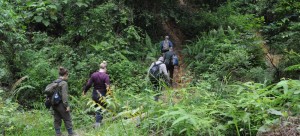
It’s British Science Week 2017 and to celebrate we’re sharing some of our science research stories, to highlight some of the fantastic research taking place here at BU. Today we’re looking at the how researchers are working to conserve wildlife and tropical habitats in Indonesia.
In rainforests and tropical forests all across the world, deforestation, human activities and climate change are having a huge impact on both vulnerable eco-systems and the wildlife that depend on them for survival. For the last few years, researchers and students at Bournemouth University have been working in the remote forests of North Sumatra to find out what these changes mean on the ground.
LEAP (Landscape Ecology and Primatology) is led by Associate Professor Amanda Korstjens and Professor Ross Hill from BU’s Department of Life & Environmental Sciences (LES). They are supported by a number of postgraduate students.
In the tropical forests of northern Indonesia lies the Sikundur monitoring site, run by the Sumatran Orang-utan Conservation Programme (SOCP) which for several months of the year, is home to BU staff and students. From here, the team carry out research to understand changes in the forest and how this affects species such as orang-utans, siamangs, gibbons, Thomas’s langur monkeys and elephants.
Dr Amanda Korstjens explains the project: “It’s all about disturbances to the forest – both from humans and climate change – and how that affects the forest structure and carbon stock. We’re also exploring how different primates and elephants use the forest, depending on its structure and vegetation and how they respond to changes in their habitat.
“For example, if humans cut down hard wood trees, which are often the taller trees that siamangs, gibbons and Thomas’s langurs prefer for safe sleeping places, how does this affect their chances of survival? How does the extraction of mature fruiting trees affect primate densities? We’re looking at endangered primates that tend to live in very specific areas. They’re likely to be disproportionately affected by changes to their environment.”
Professor Ross Hill says: “We’re working in an amazing area of Indonesia, the Leuser Ecosystem in Sumatra, which is the last place where you can still find Sumatran orang-utans, rhinos, elephants and tigers together. Changes to the environment and human activity, such as road building or the development of palm oil plantations, can have a huge effect on declining species.”
The project site is set up as a student learning platform, where PhD and Master’s research students spend several months carrying out their fieldwork. Some undergraduate students have had the opportunity to spend a short amount of time in the region, giving them an insight into future conservation careers. The elephant project has also included project work by three Indonesian Master’s students.
“It’s great for our undergraduates to get their first experiences of living and working in the tropics. It can be quite a daunting prospect to go alone, so travelling together as a group makes it much more manageable,” explains Dr Korstjens. “Our PhD students and postdoctoral researcher work on a variety of projects, using cutting edge technology including airborne laser scanning to assess the forest structure, as well as photography from drones.
“These data sets are very important as they enable us to see how the forest and vegetation are changing. One of the aims of our project is to find ways of gathering these data at a much lower cost, which is made easier by rapid changes in technology. As an example, we hope to be able to use photographic data from drones to measure carbon stocks rather than having to send people out into the forest to measure trees individually; the latter can be hugely expensive.”
These developments in technology are not only helping the advancement of science and research methods, but are also being used by local organisations in the area to monitor poachers and forest loss. Several now have their own drones, which enable them to keep watch over vast areas of forest and mean that eventually they may also be able to use the methods being developed by the LEAP team, especially by BU’s postdoctoral researcher Dr Cici Alexander as part of her European funded Marie SkŁodowska-Curie project.
The data gathered by Bournemouth University’s researchers is being fed back to local conservation organisations, such as the Leuser Conservation Forum (FKL), HAkA, and the Sumatran Orangutan Conservation Programme of the YEL-PanEco consortium, BKSDA, and activists, including Rudi Putra, and Dr Nursahara (from the University of North Sumatra) and Dr Abdullah (from the Syiah Kuala University in Aceh). They are then able to use the results to change the way that conservation takes place in the area. It’s an ideal partnership as research teams are able to contribute their knowledge, while local people are able to make a difference in practice.
“We provide them with the data they need to be able to properly and effectively protect the forest and the animals,” explains Dr Korstjens, “They are involved in the management of the site and of the parks. They talk to the government and other local organisations in a way that we simply wouldn’t be able to.
“As an example, we’ve shown that there is a link between primate densities and forest structure. Old growth forests are likely to have a higher proportion of gibbons and siamang. We are measuring differences in temperature at different heights in trees located in more open and more dense forests and will be linking this to the behaviour and movement of orang-utans, gibbons and siamangs.”
One of the PhD students involved in the study, Chris Marsh, has shown that temperatures can differ by up to 10oC between locations. An increase in temperature is particularly noticeable when trees have been cut down, as the remaining trees are more exposed and become hotter. By demonstrating the link between the two, the team hope that local organisations will be able to make a difference to conservation and logging practices.
For more information, visit the project website: www.bournemouth.ac.uk/brc-go-leap.
This story featured in the 2017 Bournemouth Research Chronicle, which can be read in full here.
 Congratulations to Dr. Jenny Hall in the Centre for Midwifery, Maternal & Perinatal Health (CMMPH) on the publication of her paper ‘Spiritual aspects of living with infertility: synthesis of qualitative studies’. [1] Dr. Hall co-authored this paper in the Journal of Clinical Nursing with colleagues from Ireland and Portugal.
Congratulations to Dr. Jenny Hall in the Centre for Midwifery, Maternal & Perinatal Health (CMMPH) on the publication of her paper ‘Spiritual aspects of living with infertility: synthesis of qualitative studies’. [1] Dr. Hall co-authored this paper in the Journal of Clinical Nursing with colleagues from Ireland and Portugal.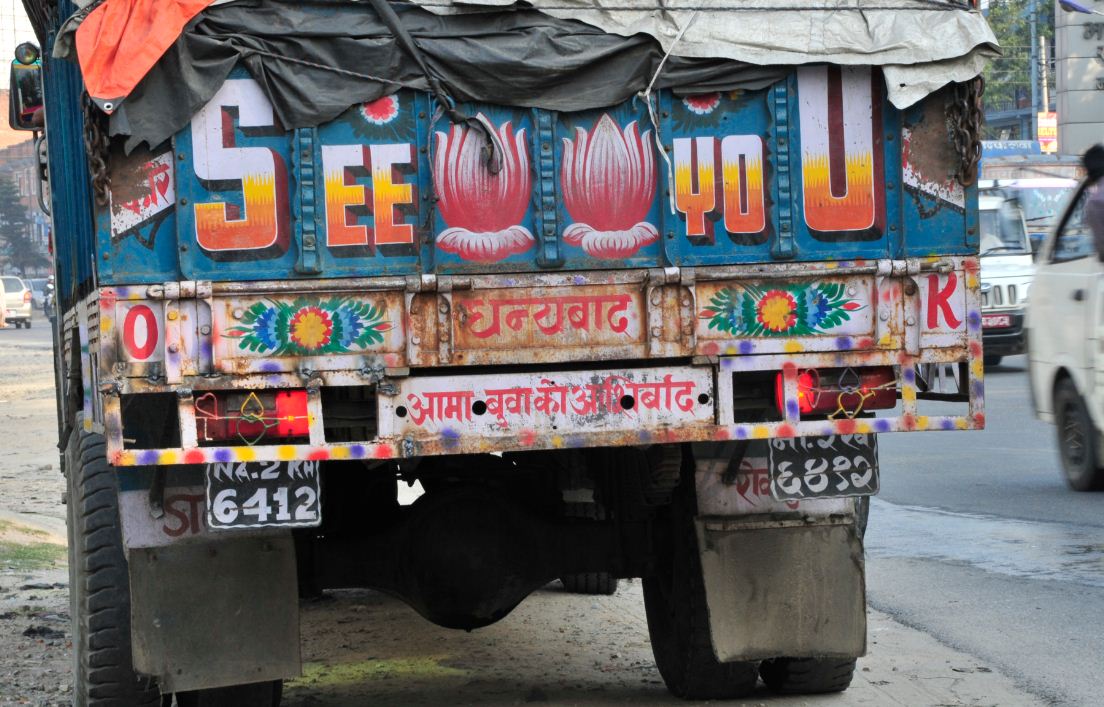

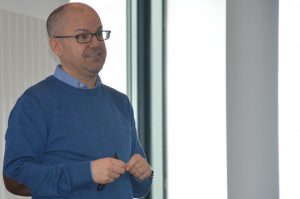
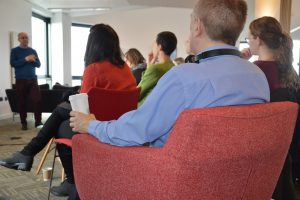



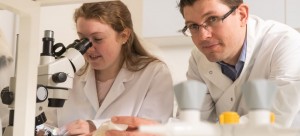

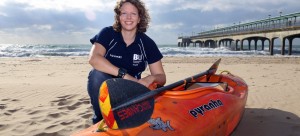 It’s
It’s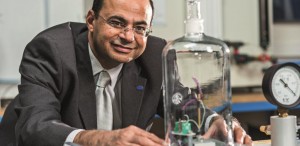
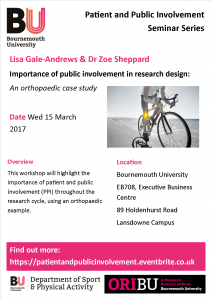
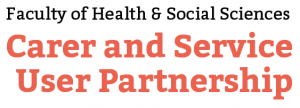
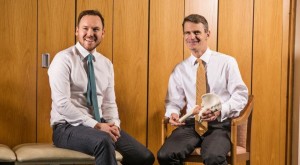

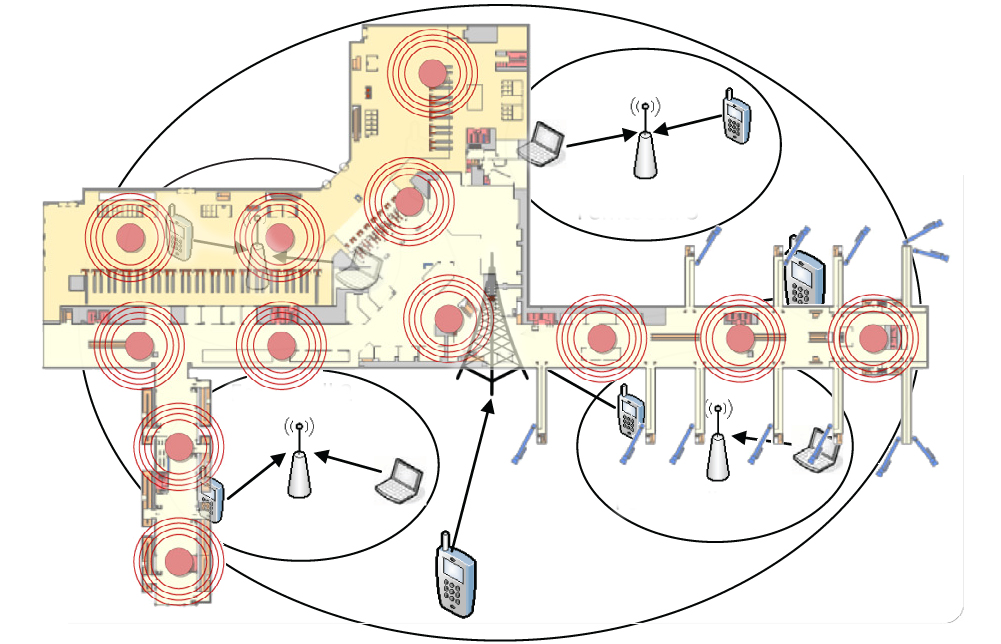

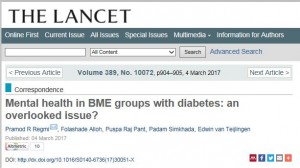
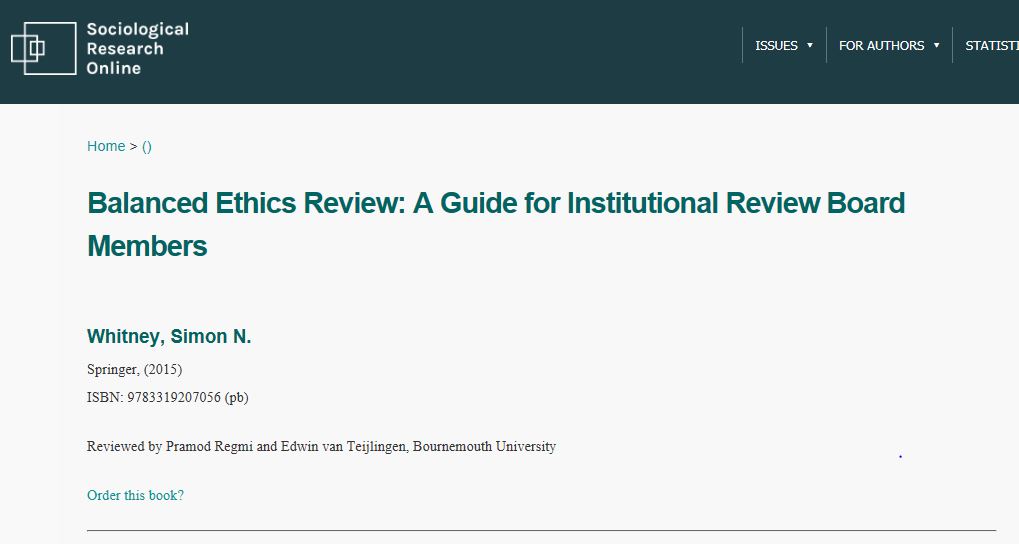
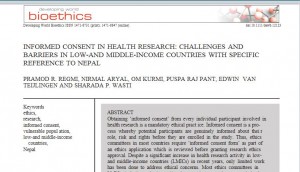
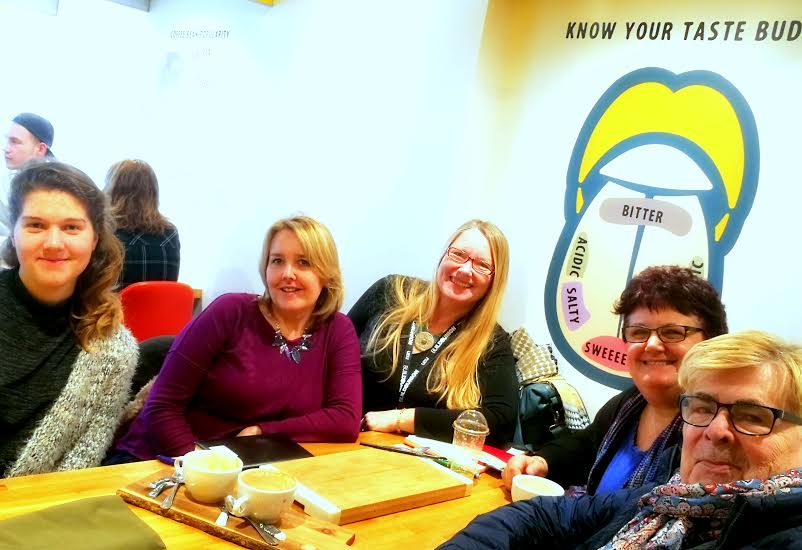











 From Sustainable Research to Sustainable Research Lives: Reflections from the SPROUT Network Event
From Sustainable Research to Sustainable Research Lives: Reflections from the SPROUT Network Event REF Code of Practice consultation is open!
REF Code of Practice consultation is open! BU Leads AI-Driven Work Package in EU Horizon SUSHEAS Project
BU Leads AI-Driven Work Package in EU Horizon SUSHEAS Project ECR Funding Open Call: Research Culture & Community Grant – Apply now
ECR Funding Open Call: Research Culture & Community Grant – Apply now ECR Funding Open Call: Research Culture & Community Grant – Application Deadline Friday 12 December
ECR Funding Open Call: Research Culture & Community Grant – Application Deadline Friday 12 December MSCA Postdoctoral Fellowships 2025 Call
MSCA Postdoctoral Fellowships 2025 Call ERC Advanced Grant 2025 Webinar
ERC Advanced Grant 2025 Webinar Update on UKRO services
Update on UKRO services European research project exploring use of ‘virtual twins’ to better manage metabolic associated fatty liver disease
European research project exploring use of ‘virtual twins’ to better manage metabolic associated fatty liver disease